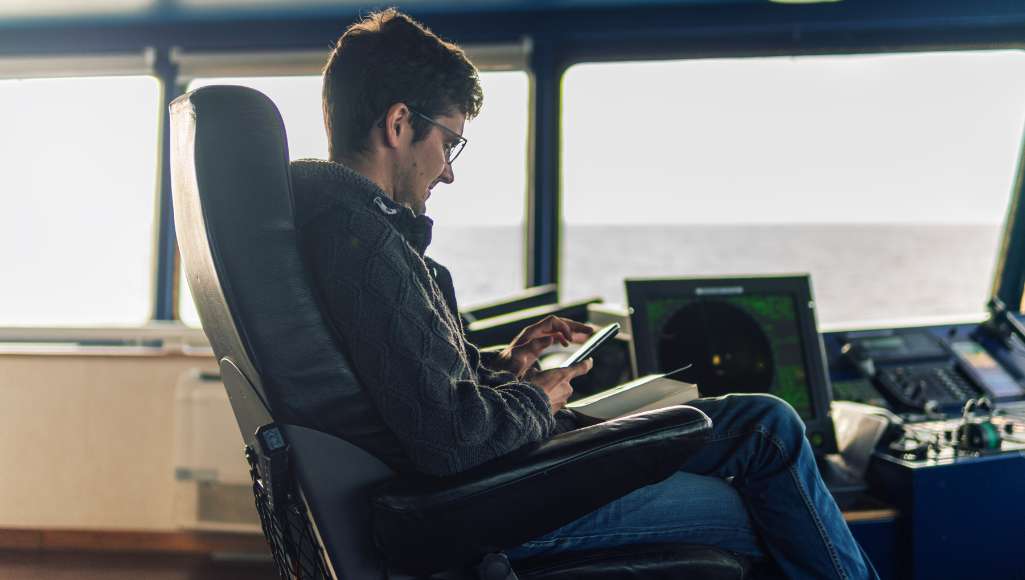
There's a Mental Health Crisis at Sea
Despite the rising role of women in maritime, the industry remains male-dominated, especially in leadership roles. Centuries of historical baggage and militaristic rigidity have created a culture steeped in outdated ideas of what it means to be a seafarer – independent, emotionally closed and strong at all costs.
However, the industry’s dark underbelly is a far higher rate of suicide than most other careers. This alone suggests that it’s time to take mental health at sea more seriously. Too many shipboard workers are suffering, and viable solutions exist, including proactive total healthcare solutions that take a preventive approach to wellbeing.
The Problem of Suicide at Sea
A recent article titled “Greater intervention needed to battle shipping’s tragic rates of suicide” confronts the issue head-on.
“Are seafarers willing or able to truly open up about suicidal thoughts or the phases and stages of stress, depression or substance dependence that could lead to suicide?” asks Steven Jones, founder of the Seafarers Happiness Index.
He suggests that suicide may account for anywhere from 5 to 12% of deaths at sea. To make matters worse, there is still no standard global framework for reporting suicides at sea, leading many to believe that the problem is worse than anyone wants to admit.
“My feeling is that there is an understandable hesitancy or unwillingness to engage openly, based on fear of stigma [or] of losing work,” Jones adds. “Whatever the real figures, there are strong indications that the rate outstrips comparable populations ashore.”
The 2023 Seafarer Happiness Index report points to overwhelming workloads, driven by expanding regulations and administrative tasks, as a major source of stress and despair. There is a growing sense that seafarers face an unmanageable number of responsibilities in jobs already beset by danger, stress and isolation.
The aforementioned article also posits several explanations and motivations as to why suicides at sea may be underreported:
- Difficulty verifying with certainty that a death was actually suicide
- The desire to protect surviving family, both emotionally and financially
- Fear that insurance may not pay death benefits in the event of a suicide
- The stigma of suicide in many seafaring cultures (e.g. China and the Philippines)
Mental Health is a Worthy Investment
Poor mental health isn’t just linked to intentional harm; it is a key driver of accidents and injuries that can negatively impact a ship’s ability to meet operational goals. But operators have real economic incentives to invest in crew wellbeing. A 2022 study by Deloitte found that when employers invest in mental health, it yields an average return of £5 for every £1 spent.
Whether a maritime worker needs help with stress, anxiety, depression or loneliness, remote access to professional counselling has been shown to have positive effects. The use of external, anonymous channels to address personal issues has proven successful in other industries, too. In fact, some of the world’s top-performing corporations make mental well-being an explicit priority.
If the maritime industry continues to keep mental health issues in the dark, it will continue to face serious consequences. The option to privately connect with a counsellor through a mobile device can be the release valve needed to avoid harm – to oneself, to others onboard, and to the operator’s reputation.
From a cultural standpoint, when crew members learn that emotional and psychological distress can be treated by picking up the phone or sending a text, they will eventually encourage struggling shipmates to do the same. This is how stigmas are broken and new behaviours become normalised.
The Tide May be Starting to Turn
This new generation of seafarers has different expectations of work. Employers can no longer rely on them to be grateful and satisfied simply for having a job. Young mariners are well-informed and accustomed to higher living standards, which means they expect more of their employers – and not just financially.
They consider safe and healthy working environments a fundamental right (as it should be). And from the perspective of an operator, it can minimise tension and conflict, improve staff retention, and improve safety, performance and productivity.
Some employers have already adopted wide-ranging improvements to support seafarer mental health, including proactive changes to terms of employment and improvements to the quality of life onboard. However, 55 percent of respondents to a survey by the Institution of Occupational Safety and Health had yet to introduce any policies or practices aimed at addressing issues of seafarer mental health in the last decade.
OneHealth by VIKAND
At VIKAND, we are continuously working to change the discussion around mental health – and seafarer wellness in general – by promoting a proactive, holistic approach to health. Our mission is to fuel maritime productivity and success by lowering the risk of mental and physical health issues, and OneHealth by VIKAND is our platform for realising these goals. OneHealth includes a complete suite of proactive health measures, including 24/7 live and remote support for a wide range of seafarer health and wellness concerns.
VIKAND is also home to team members with real maritime experience who offer a confidential, secure space for crew members to express personal concerns, with the goal of empowering healthier, happier seafarers. This is the future of human healthcare at sea – proactive, comprehensive and accessible from anywhere, so that our seafarers have the tools they need to safely thrive.


